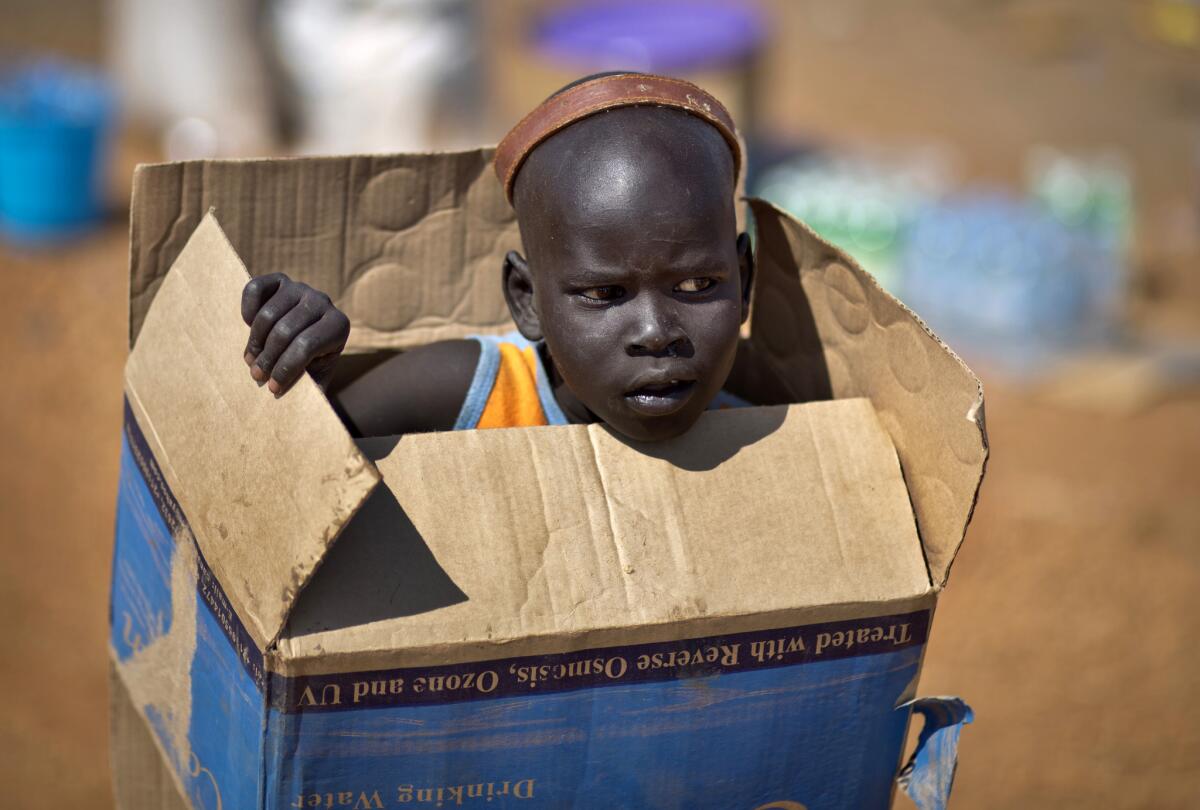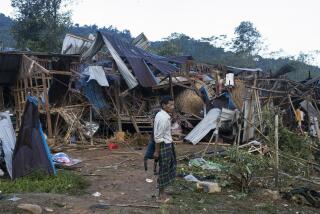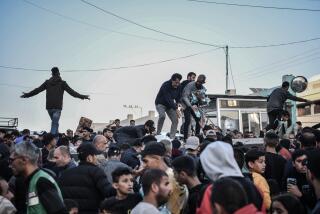South Sudan government agrees to stop fighting; rebels stay mum

JOHANNESBURG, South Africa – South Sudan’s government has agreed to end fighting with rebel forces, East African leaders announced Friday, in a deal that will hinge on whether rebel leader Riek Machar agrees to the truce.
At a summit in Nairobi seeking to stop the escalating violence in South Sudan, the government of President Salva Kiir committed itself to an “immediate cessation of hostilities,” a communiqué issued by regional heads of state said.
The statement urged Machar to “make similar commitments,” though the former vice president turned rebel is said to have had no representative present for the meetings, and his position remains unclear.
The eight-member regional Intergovernmental Authority on Development said it reserves the right to take “further measures” if Machar fails to cease fighting within four days, but did not elaborate on what this would mean.
The communiqué also called for the government and rebels to hold face-to-face talks by Dec. 31.
Despite the proposed truce, fresh fighting between government and rebel forces was reported today in Malakal, the capital of oil-rich Upper Nile State, with both sides claiming control of the city.
A local broadcaster, Radio Tamazuj, reported that government forces had driven rebel soldiers out of the city Friday, with dozens of houses destroyed in the fighting and a family of four killed when their home was hit by a tank round.
The aid agency Doctors Without Borders said casualties from the fighting have been “flooding” into Malakal’s hospital.
Radio Tamazuj also reported fighting Friday in the northern part of the country, in Unity State, between army troops and defectors said to have joined rebel forces.
More than 1,000 people are said to have died in recent fighting in South Sudan, the world’s newest state, while at least 121,600 have fled their homes, according to a United Nations statement.
The U.N. said that some 63,000 civilians have taken shelter at its bases around the country, with 25,000 of them at two bases in Juba, the country’s capital.
The security situation in northern Upper Nile and Unity states remains “tense,” the statement said.
Kiir and Machar have been locked in a power struggle that began Dec. 15 with the president accusing his former deputy of plotting a coup.
The violence has spread to five of the country’s 10 states, and has taken on an ethnic dimension between members of Kiir’s Dinka tribe and Machar’s Nuer people.
Donald Booth, the U.S. special envoy, was quoted by Reuters news agency Friday as saying that Kiir had agreed to release eight of 11 senior politicians arrested over the alleged coup plot, which Machar has said is a pre-condition for peace talks.
In a speech at the summit, Kenyan President Uhuru Kenyatta said there is “a very small window of opportunity to secure peace” in South Sudan.
The regional bloc “will not accept the unconstitutional overthrow of a duly and democratically elected government in South Sudan. Violence has never provided optimum solutions,” Kenyatta said.
John Watt, deputy regional director for the aid group Oxfam, cautiously praised the agreement by South Sudan’s government to end hostilities.
“This is a welcome step forward towards ending the violence and human rights abuses that have swept through many areas of South Sudan in recent days,” Watt said.
“However, this truce by the government will only lead to an end to the fighting if all the political leaders agree to resolve their differences peacefully.”
The U.N. Security Council on Tuesday voted to nearly double the number of U.N. peacekeepers in South Sudan, to 12,500.
More to Read
Start your day right
Sign up for Essential California for news, features and recommendations from the L.A. Times and beyond in your inbox six days a week.
You may occasionally receive promotional content from the Los Angeles Times.






